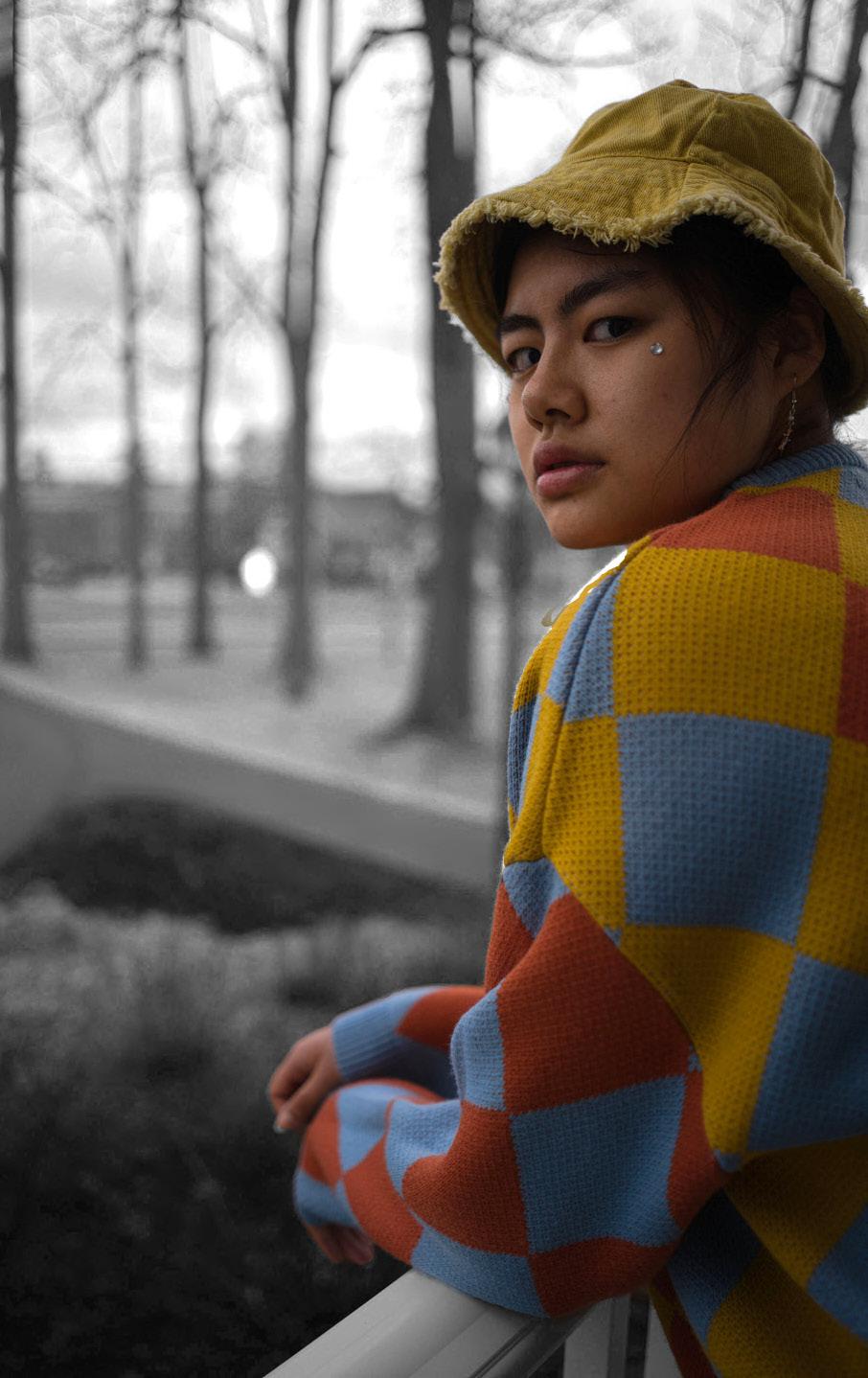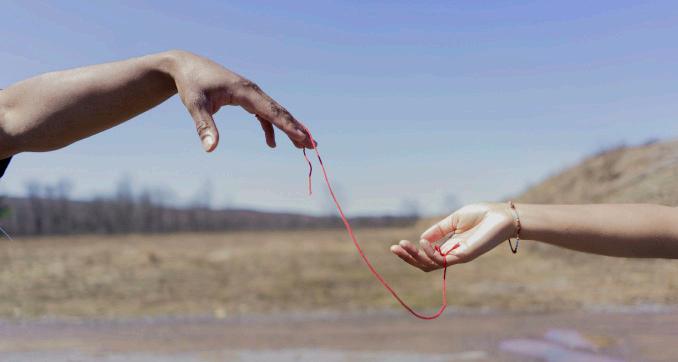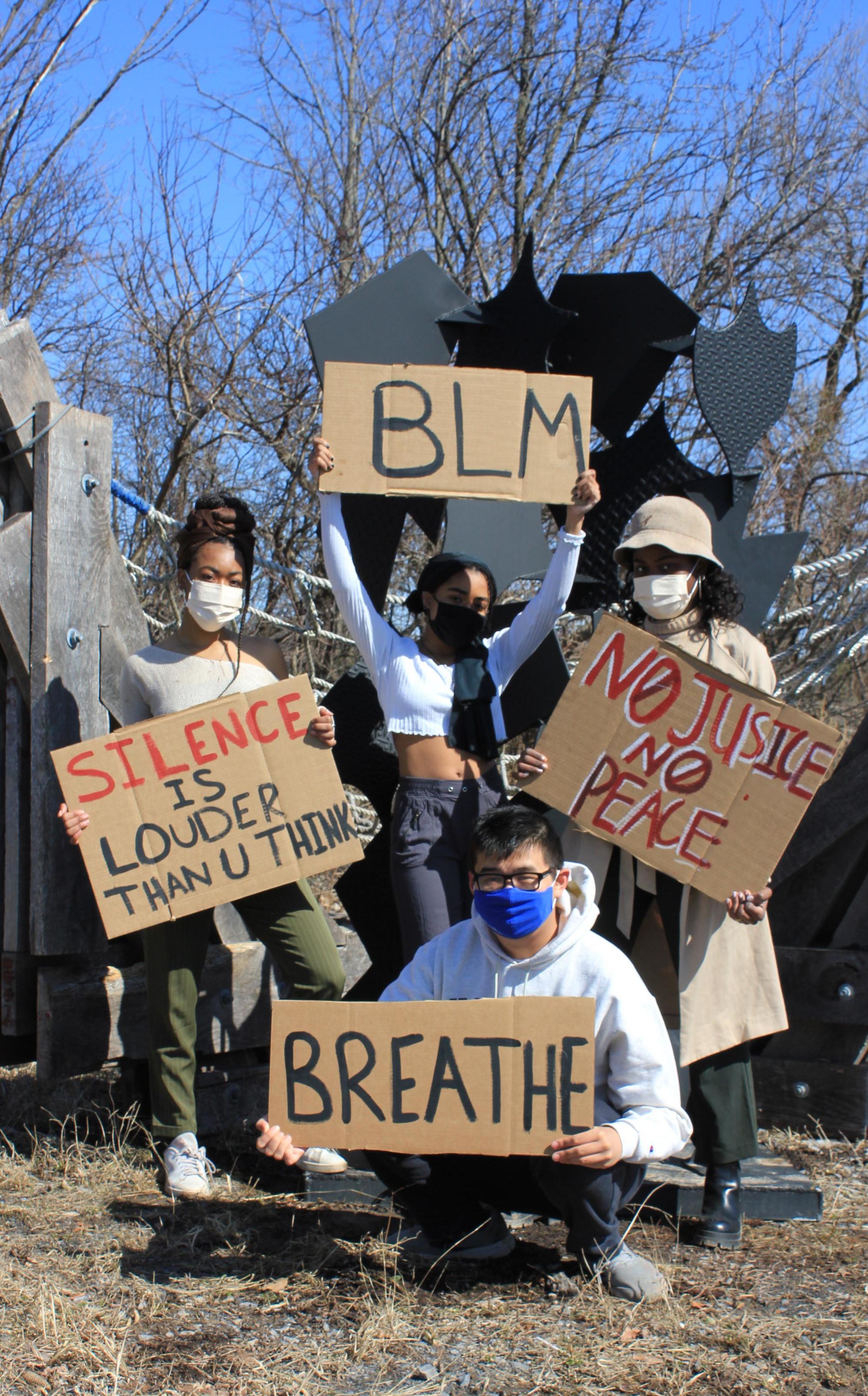
6 minute read
Covid and Coping: A Word with the Wellness Center
Sophonie Excellence is a licensed Social Worker from New York City with 7 years of experience working in various areas of practice. Her love and passion for mental health has helped her connect with individuals from different walks of life. Sophonie approaches therapy by establishing a strong therapist-client relationship with a lens filled with compassion, empathy, and charisma. She believes that everyone has the power to reclaim parts of their life through. intentionality.
What tips do you have for students struggling with lonliness during the pandemic?
Advertisement
Use virtual outlets! Connect with your loved ones via tools like Zoom, google hangouts, facetime, or WhatsApp. The pandemic has allowed for individuals to connect in creative ways and using these resources can help you to interact with your loved ones. I would also suggest engaging in something you enjoy or finding a new hobby. Finding new ways to keep yourself involved in exciting things can bring a sense of fulfillment and help you overcome these feelings.
What worries me the most is the lack of access to services and thinking about individuals who were forced to quarantine in very toxic settings. The domestic violence and suicidal rate has skyrocketed since the pandemic and limited resources or access to resources has played a part in that role. I can imagine that individuals are experiencing loneliness, grief, job insecurity, fear, depression, and anxiety related to the pandemic and have lost a sense of security.
How do you personally manage coronavirus and other pandemic related anxiety?
I turn off the news. I have found that watching or reading the news has only maximized my feelings of anxiety as I often found myself thinking about life’s stressors. I had to learn to create boundaries for myself whether that meant signing off of social media, engaging in healthier conversations, or advising others of what I was okay in talking about. I also engage in self-care everyday through exercise, playing music, and journaling. Finding healthy outlets to manage feelings has helped me sustain my overall wellbeing.
Do you have any advice for students supporting their peers’ mental health?
Put on your oxygen tank first. The best ways we can help others is if we help ourselves first. Create boundaries around your access and find healthy balances of being present with others and taking care of yourself. Most importantly, when you support others, come from a place of non judgment, curiosity, and understanding. Encourage your friends to seek therapy if possible.

Sabrina Sarro (they/them/theirs) is here for you. They are a queer, trans* Black mixed-race writer, psychotherapist, and dynamic spirit exfoliator. Sabrina works primarily with BIPOC/LGBTQIA*/TGNC*/POLY-AM/ Black folx. They love to incorporate and use treatment modalities that de-platform whiteness, and posit a different psycho-spiritual take to emotional processing including: The Sacred Enneagram, Plant Therapy, Astrology, Sacred Intuition Work ect. They are a graduate from Columbia University in NYC.
What tips do you have for students struggling with lonliness during the pandemic?
1.) Try to assess and really connect with how the loneliness might be showing up in the body. Most often, our bodies give us answers before our minds might. Try to let some of the loneliness move out of your body through body stretching, body stillness, body groundedness, dance, etc. Anything that makes you feel connected and aligned in your body! 2.) Find ways to connect and access a community that makes you feel safe. Walks outside? Listening to music/engaging in art that makes you feel seen? I encourage everyone to try and find ways to still feel connection flowing through you, even during these incredibly heavy times. What worries me most when it comes to people's mental health over the past year revolves around racial trauma, isolation trauma, and in-person connectivity starvation. COVID has disproportionately affected Black and Brown communities and continues to showcase racial disparities within the health and mental health community. Isolation trauma has festered. I am co-feeling alongside my clients the absence that has been created by not being able to connect and share space with our loved ones. I worry about the emotional ramifications of not being able to access that in-person time.
How do you personally manage coronavirus and other pandemic related anxiety?
I manage COVID and general pandemic related anxiety by trying to be as patient, kind, and tender to myself as possible. In a world wants to rob me of my access to deep rest, a big part of combatting pandemic related anxiety for me has been to find and commit to pockets of time where I’m not beholden to anything or anyone but myself and my own sacred energy. I’ve gone on walks, tried to cook more, watched and engaged in art that brings me deep passion, and have tried to stay connected to things that are joyful like connecting more with my family, engaging in soil-work, animal-work, and connecting more to my Haitian roots.
Do you have any advice for students supporting their peers’ mental health?
Put on your oxygen tank first. The best ways we can help others is if we help ourselves first. Create boundaries around your access and find healthy balances of being present with others and taking care of yourself. Most importantly, when you support others, come from a place of non judgment, curiosity, and understanding. Encourage your friends to seek therapy if possible

Elodie St. Fleur is a licensed social worker who obtained her Master’s from Silberman School of Social Work in New York City. She has a wide range of experience from inpatient psychiatric units to working with high school students transitioning to college. Elodie’s main areas of practice have been depression and anxiety. She is a firm believer in meeting the client where they are and this has proven to be successful.
What tips do you have for students struggling with lonliness during the pandemic?
It can be very easy to sit around your room all day and allow your thoughts to consume you and spiral. I suggest having a buddy system in these moments of loneliness; having a designated friend or family member to reach out to or meet up with. Along those lines, I suggest joining a class or club on campus which can provide a sense of belonging. Finally, I would definitely suggest giving therapy a try. Talking things out and learning coping techniques is a great way to overcome feelings of loneliness and anxiety. It can’t hurt to try a free service that the campus offers and if it isn’t for you, you can always walk away!
I worry often about the fact that people have not processed the year of 2020 and the long term effects of this. We were constantly in a state of uncertainty along with daily negative news coverage updates ranging from the actual pandemic, our political climate, and heightened nationwide division rooted in racism. There was very little time to process one event before we were faced with another.
How do you personally manage coronavirus and other pandemic related anxiety?
Self-care has never been more important to me in respect to managing pandemic related anxiety. I always tell my students that we have to intentionally create time for things we love to do or else we won’t do them. During quarantine, I took up new hobbies and used the extra time to learn things that I’ve always wanted to try such as cooking, makeup, and how to better care for my hair. I also practice mindfulness which allows you to create space around your worries so they don’t consume you. This can range from activities such as mediation and other grounding techniques.
Do you have any advice for students supporting their peers’ mental health?
I would suggest being that listening ear for your peers and colleagues. You may not always have the right thing to say or a solution and that’s ok. People don’t always need a solution. Listening is enough most of the time or simply being present.








